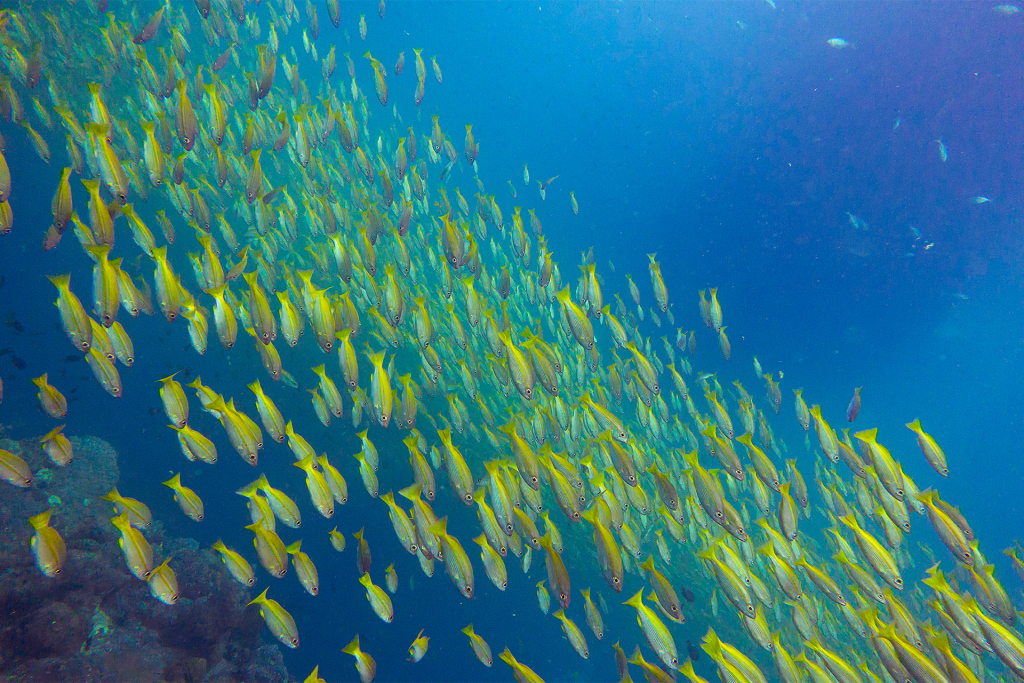Ocean Commotion

Sound pollution caused by humans is making oceans noisier than ever and harming marine life, according to a new article published in the journal Science.
Researchers looked at thousands of studies on ocean sound and its effects on wildlife. They found that noise pollution in oceans has increased over the years and has had a negative impact on animal behavior.
Sea animals depend on the ocean’s natural sounds to find their way around and communicate with one another. “Sounds travel very far underwater,” says Francis Juanes, one of the article’s authors. “For fish, sound is probably a better way to sense their environment than light.” But noise from activities like shipping, drilling, and construction drown out natural sounds. As animals flee noisy areas, their habitats shrink.
There are ways to address this problem, the study’s authors write. Wind-powered ships, quieter propellers, and floating wind turbines would lower the volume. And governments could pass laws regulating ocean noise. “We have noise standards for cars and trucks,” says Carlos Duarte, the paper’s lead author. “Why should we not have them for ships?”




